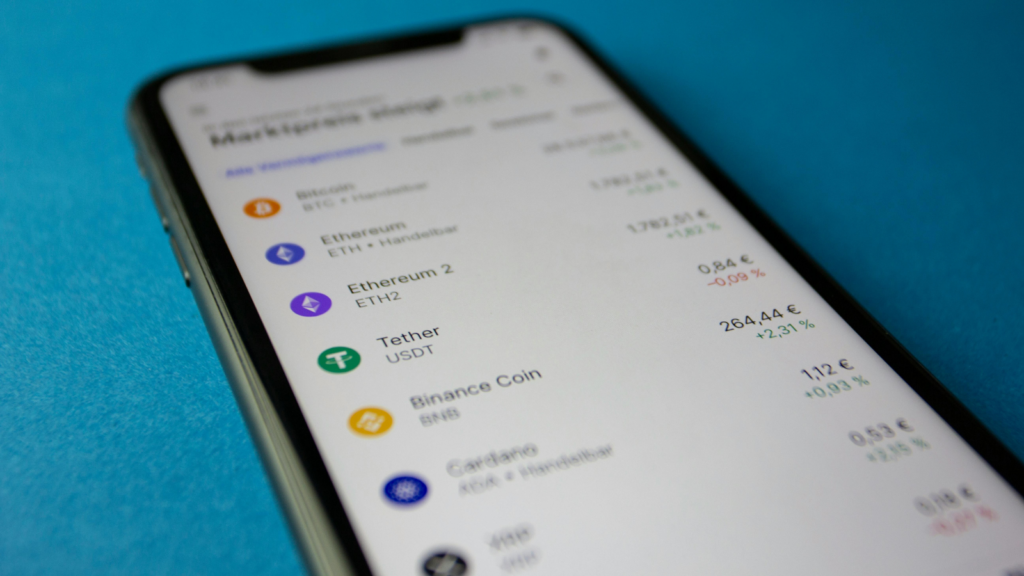In the wild west of digital currency, a cryptocurrency wallet is your trusty sidekick, ready to keep your virtual treasure safe. Think of it as a high-tech fanny pack—stylish and functional, but without the 90s nostalgia. Whether you’re a seasoned trader or just dipping your toes into the crypto waters, understanding how these wallets work is essential for navigating the blockchain landscape.
Cryptocurrency Wallets
Cryptocurrency wallets play a crucial role in managing digital assets securely. These wallets enable users to send, receive, and store cryptocurrencies efficiently.
What Is a Cryptocurrency Wallet?
A cryptocurrency wallet acts as a digital tool for storing private and public keys. It allows users to interact with blockchain networks, facilitating transactions. Users can access their digital currencies directly through these wallets. Wallet functions often include balance monitoring and transaction history tracking.
Types of Cryptocurrency Wallets
Various types of cryptocurrency wallets cater to different user needs. Hot wallets, which connect to the internet, provide ease of access for frequent transactions. Cold wallets, on the other hand, store assets offline, ensuring enhanced security. Hardware wallets offer a physical device for safe storage, while software wallets offer applications for mobile or desktop use. Each type balances convenience with security features tailored to user preferences.
Benefits of Using a Cryptocurrency Wallet

Cryptocurrency wallets provide essential advantages for managing digital assets. They enhance user experience by prioritizing security and control.
Enhanced Security Features
Enhanced security features protect assets from unauthorized access. Wallets encrypt private keys, ensuring only the owner can access their funds. Two-factor authentication adds another layer, requiring a second verification step during transactions. Cold wallets store assets offline, significantly reducing hacking risks. Users gain peace of mind with these security measures, minimizing potential losses.
User Control Over Funds
User control over funds represents a major benefit of cryptocurrency wallets. Wallets allow individuals full ownership of their private keys, unlike centralized exchanges that hold user assets. This autonomy prevents third-party interference, enhancing transaction privacy. Users can send and receive cryptocurrencies directly without intermediaries. Real-time access to balances and transaction history further empowers users, ensuring they manage their assets effectively.
Popular Cryptocurrency Wallets Reviewed
Various cryptocurrency wallets exist to cater to different user needs. This section explores popular wallet types, highlighting their unique features.
Hardware Wallets
Hardware wallets offer robust security for storing cryptocurrencies. These physical devices keep private keys offline, protecting them from hacking attempts. Examples include Trezor and Ledger, both favored for their user-friendly interfaces. Users appreciate hardware wallets for their ability to secure assets while allowing easy access during transactions. They provide a safe environment for long-term storage, with many supporting multiple cryptocurrencies. Enhanced encryption functionalities further boost their popularity, ensuring that digital assets remain secure in various environments.
Software Wallets
Software wallets provide convenient access to cryptocurrencies through desktop or browser applications. These wallets store private keys online or on the user’s device, allowing quick transactions. Popular options like Exodus and Electrum cater to different preferences, with Exodus focusing on an intuitive user experience. Many users favor software wallets for their balance of accessibility and security while retaining full control over their private keys. Additionally, they often include built-in exchange features, enabling users to swap assets effortlessly. Regular updates also enhance their security, making them a viable option for frequent traders.
Mobile Wallets
Mobile wallets enable cryptocurrency management on the go. Users can download apps like Trust Wallet or Coinbase Wallet to manage assets directly from their smartphones. Their accessibility appeals to many, allowing instant transactions and easy balance checks. Mobile wallets typically incorporate features like QR code scanning for swift payments. Users enjoy the convenience of sending and receiving cryptocurrencies anytime, anywhere. While they provide substantial ease of use, adopting additional security practices such as biometric authentication is wise to mitigate risks present in mobile environments.
How to Choose the Right Cryptocurrency Wallet
Selecting the appropriate cryptocurrency wallet requires careful consideration of several factors. Choosing a wallet aligns with one’s specific needs and preferences for managing digital assets.
Factors to Consider
Security features constitute the most crucial element. Users should prioritize wallets that offer robust encryption, two-factor authentication, and backup options. Type of wallet matters as well. Hot wallets provide quick access for trading, while cold wallets offer enhanced security for long-term storage. Compatibility with various cryptocurrencies is essential too. Wallets that support multiple cryptocurrencies offer more flexibility. User experience plays a role, so wallets with intuitive interfaces make managing assets easier. Lastly, community feedback and reviews can provide insights into a wallet’s reliability and performance.
Tips for Beginners
Start by assessing the cryptocurrency types to hold. Different wallets support various cryptocurrencies, making it vital to choose one that accommodates specific needs. It’s advisable to research and compare top wallet options to understand features and costs. Setting up the wallet correctly ensures security measures are in place. Backing up private keys or recovery phrases maintains access in unforeseen circumstances. Beginners should practice transaction methods in a test environment before using real assets. Engaging with community forums helps gather insights and experiences from seasoned users, providing valuable guidance.
Conclusion
Choosing the right cryptocurrency wallet is crucial for anyone looking to navigate the digital currency landscape. With the variety of options available users can find a wallet that meets their specific needs while ensuring the security of their assets. Whether opting for a hot wallet for convenience or a cold wallet for enhanced protection each type offers unique benefits.
By understanding the features and functionalities of different wallets users can make informed decisions that align with their trading strategies and security preferences. As the cryptocurrency market continues to evolve staying updated on wallet technology and security practices will empower users to manage their digital assets confidently and effectively.


